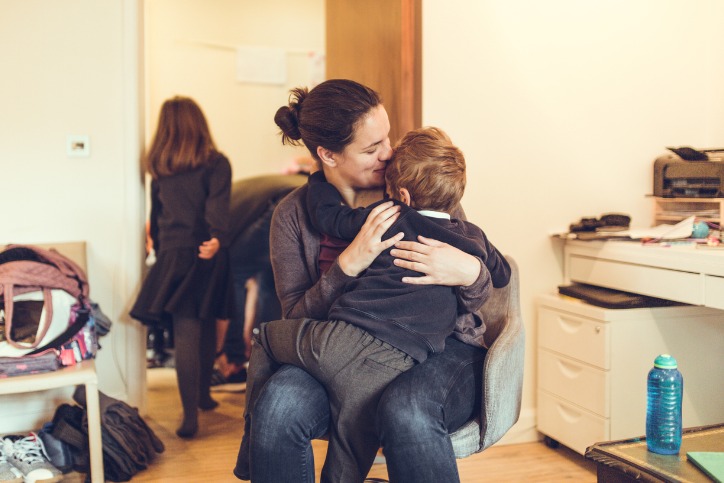
Most primary school aged kids have some back to school stress.
And no wonder. They’ve had weeks to swan around on holidays without a care in the world - it’s a long time in a little person’s life!
Mostly, stress is related to anticipation, and fear of the unknown: ‘What will my teacher be like?’ Who will I be sitting next to? Will the work be really hard this year? For most students, the back to school stress is short lived They worry for a day or two before school goes back but once they start school, their worries disappear as they become accustomed to the ne routines and friendships. For other students, the stress and anxiety lasts for weeks. But there are things you can do to help your child ease back into things.
Making it Easier to Go Back to School
Follow these seven simple tips for making this time of year less stressful for everyone.
#1 Dealing With Stress About Friends
Kids haven’t seen most of the students in their year group for weeks so it can worry them that they might not fit back into their friend groups. If your child isn’t in the same class as their close friends, tell them to arrange a spot to meet up at recess and lunchtime. Try to organise after school play dates or sport on the weekend with several students to widen their social groups.
#2 Stop the Stress by Being Organised
Back to school stress for parents is real. You need to be organised on the first morning of school. There is the box of school supplies to deliver, lunch to pack, the first day photo to take and parking to be found.
If you’re flustered and rushing around, your child will pick up on your stress. Get everyone in the house up earlier than you would normally so you can get ready calmly. If there’s plenty of time to fill before going to school, you can always play a board game to keep their mind busy.
If you have more than one child to deliver to new classrooms, you may need both parents or the help of a grandparent to make the morning a little less flustered.
#3 Stay Positive for your Child
A child picks up on how their parents are feeling so make sure you’re always positive about school when your child is in earshot. Even if your child is anything but positive, tell them a new school year is special and a time to celebrate. Promise to take them out for a meal or fun activity after the first week of school to mark the celebration.
#4 Let your Child Talk about their Worries
While it’s important to stay positive, you don’t want to dismiss their concerns. Ask your child to explain what is worrying them. Listen proactively and if your child is young, try to resolve their concerns. Remind them of similar situations where everything worked out fine. If your child refuses or can’t tell you what they're worrying about, tell them you are available to listen whenever they need.
#5 Make a Routine
Kids do well when they know the routine. Make a list of what they need to do in the morning to get ready for school and something fun to look forward to in the afternoon when they get home from school. For young kids you can turn it into a game by laminating a list of pictures so they can use a marker to cross off each item as they complete.
#6 Check out The BRAVE Program
An interactive, free online program, BRAVE is designed to prevent and treat childhood and adolescent anxiety. There are separate programs for children aged 3-7 years, another program for 8-12 years, teens and parents. Supported by Beyondblue, BRAVE helps children and their parents develop skills and coping strategies for dealing with worries and anxiety.
#7 Seek Further Help
If your child’s anxiety is severe or continues past the first few weeks, talk to their teacher to find out if there are any problems once they are at school.
If you are worried about your child or you want to learn coping mechanisms you can use to help your child, contact a qualified therapist at PeopleSense by Altius on 1300 307 912 or (08) 9388 9000, or
contact us online.